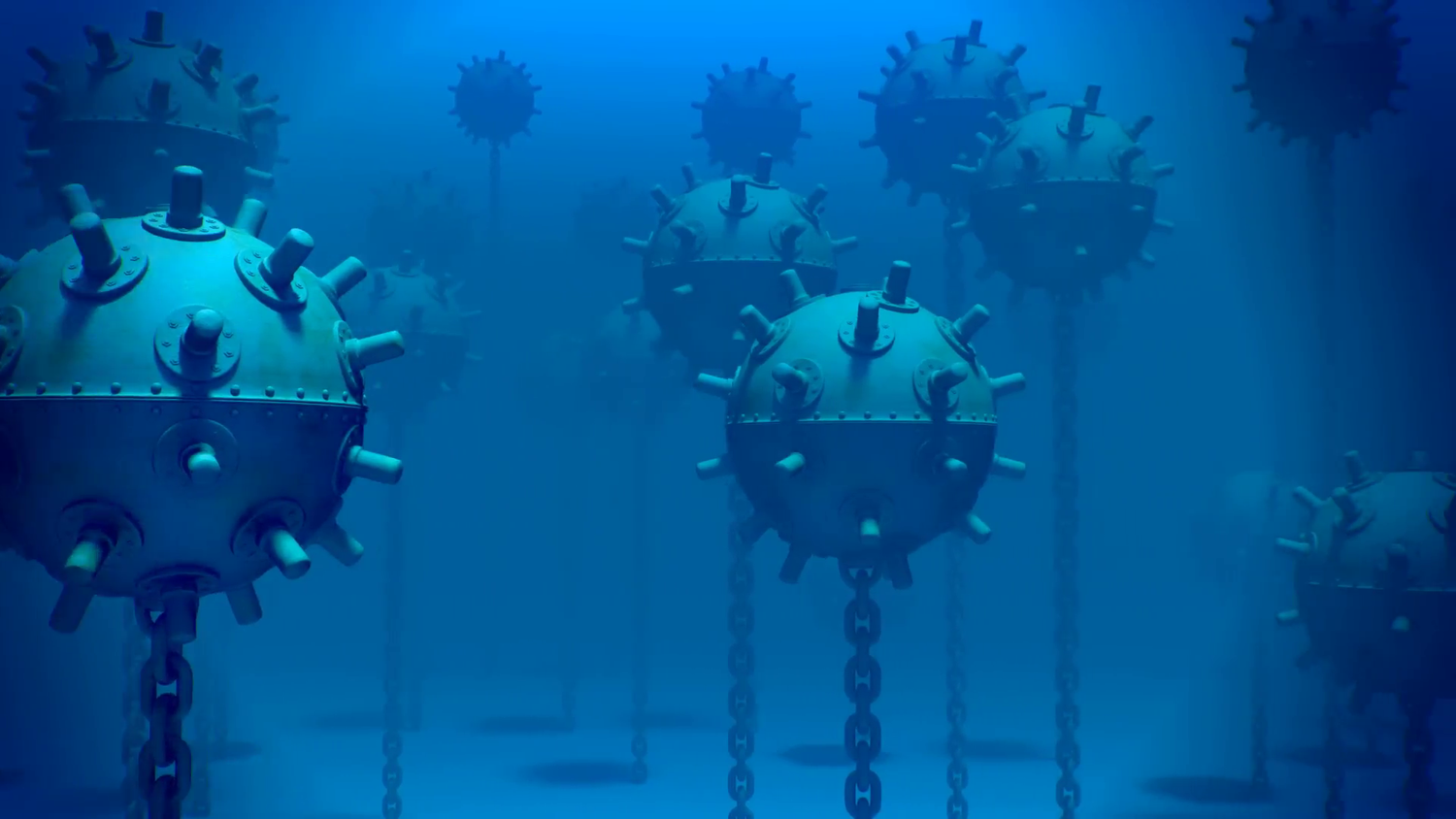Mine case, who blocks Ukrainian wheat in the Black Sea?

The hypotheses of experts on who between Russia and Ukraine put naval mines in the Black Sea, the difficulties of demining and a possible plan to free the grain and avoid an increasingly real food catastrophe
While Prime Minister Mario Draghi draws attention to the risk of a food catastrophe due to the war caused by Vladimir Putin, Ukrainian wheat – which together with the Russian one feeds between 600 and 800 million people who are mainly in Africa, Asia and the Middle East – held hostage by naval mines scattered across the Black and Azov seas.
Floating mines had already been found even at the beginning of April off the coast of Turkey and Romania, which had taken care of defusing them.
MUTUAL ACCUSATIONS
Meanwhile, Moscow and Kiev are pointing fingers at each other on who has mined the area and, therefore, on who should take care of removing them.
As Johannes Peters , maritime strategy expert at the University of Kiel said, being a powerful lever for both countries it is difficult to establish how the facts really stand because "both versions are plausible".
Also according to an AFP news agency report published in the Moscow Times on May 20 and cited by German broadcaster DW , a French army spokesperson suggested that both Russia and Ukraine have placed naval mines in the Black Sea and port basins.
BECAUSE IT COULD HAVE BEEN RUSSIANS
However, as we read on Naval News , the Ukrainian navy, clearly at a disadvantage compared to Putin's, would not have been able to carry out such an operation, having above all to go unnoticed in the eyes of the Russians, who could have immediately publicly denounced the fact .
Russia, on the other hand, has an adequate fleet to spread so many mines in a short time. Other methods to lay mines are airplanes or submarines, but even these – explains the article – are impossible because Ukraine does not have such capabilities. Kiev could have laid some mines quickly and carelessly with a tugboat or other small ship, but laying hundreds of mines seems next to impossible.
DOUBTS
Naval News also raises some doubts as to whether Russia knew the exact number of floating mines. It was in fact the Novorossisiyk coastal station that stated on March 18 that there were 420.
Not only that, the article points out that it is somewhat strange that the mines reached the Bosphorus from Odessa in such a short time because, while calculating the current from the Danube to the Bosphorus, "it seems unlikely that a drifting mine could have traveled 360 nautical miles. in such a short time ".
BECAUSE THE UKRAINIANS COULD HAVE BEEN
Although this is a less real possibility for the technical reasons mentioned above, also Ukraine, being weaker at sea than the adversary, would have had an interest in placing mines to defend itself and thus immobilize the enemy, preventing it from attacking.
"It is not Russia that refuses to open 'Ukrainian ports', but rather Ukraine that refuses to remove mines from ports to ensure a safe exit of ships," said Russian Ambassador to the United Nations Dmitry Polyansky. . But, as DW points out, this is "not demonstrable".
THE QUESTION OF SOVIET MINES
Not even the fact that they are old models of Soviet mines, information also confirmed by Turkey regarding those that arrived near its coasts, cannot establish who was responsible because, as Peters argues, "after the annexation of Crimea, even the Russian navy has had access to these mines ”.
MINING AND RISKS (FOR ALL)
Finally, if neither of the two countries decides to admit that they have put mines in the Black Sea, not knowing the coordinates, it is not possible to proceed with demining and, therefore, with the passage of ships and the transport of various raw materials, between which wheat.
However, Ukraine would have neither the technology nor the money to clear the mines.
“Regardless of who released these floating mines in the Black Sea – writes Naval News – they represent a threat, especially for civil navigation and fishing. If the freedom of the sea was affected by this war, the presence of floating mines has created a new dimension of threat for neutral countries and civilian vessels ”.
IS AN AGREEMENT ON WHEAT STILL POSSIBLE?
Ukrainian Foreign Minister Dmytro Kuleba asked for the support of third countries – including the United Nations – to create a safe channel in the Black Sea for the transport of Ukrainian wheat and in an interview with Repubblica said that: "It is a race against the time. To avoid disastrous consequences, the unlocking of ports must take place within two weeks at the latest. Of course, the best option would be an end to the war, but Putin doesn't want to ”.
THE INTERVENTION OF ITALY
In the event of an agreement between Russia and Ukraine, Italy would be willing to participate both in the demining operation with mine destroyers and as an "escort", together with other EU countries, for the passage of Ukrainian grain ships in order to guaranteeing the safety of civilian boats and avoiding any accident in the Black Sea that could involve a NATO country – an eventuality with no return that would trigger a global military escalation.
This is a machine translation from Italian language of a post published on Start Magazine at the URL https://www.startmag.it/mondo/caso-mine-chi-blocca-il-grano-ucraino-nel-mar-nero/ on Wed, 01 Jun 2022 04:40:04 +0000.
